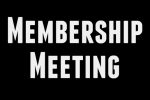The National Labor Relations Board enforces the National Labor Relations Act, the principal law safeguarding your right to organize to improve your working conditions, whether or not you are in a union. Workers turn to the NLRB when they are illegally fired or otherwise prevented from working together for change.
The NLRB is supposed to have five members that are nominated by the President and confirmed by the Senate. But corporations have persuaded Republicans in the Senate to use silent filibusters to prevent a vote on President Obama’s nominees. The Board needs at least three members to make decisions. Two of the five seats on the NLRB are currently vacant and the term of another member will expire in August.
Working people need and deserve a functioning National Labor Relations Board. The President has sent the names of five well-qualified nominees to the Senate. If we don’t let our Senators know that the NLRB matters, Senate Republicans will continue to abuse the Senate rules and filibuster the nominees and Senate Democrats will not take action to overcome the filibuster.
What you can do
• Sign the online petition: giveus5nlrb.org
• Tweet this to your Senators:
CO Senators @MarkUdall & @SenBennetCO: Do whatever it takes to #GiveUsFive @NLRB members.
• Call your Senators and tell them to vote to confirm the five NLRB nominees and to vote for a rules change if the nominees are blocked.
Call 1-888-966-9824 and tell them:
• We deserve a fully functional NLRB with five members.
• If the nominees are blocked, I urge you to vote for rules change to allow for an up-or-down vote
• Text “NLRB” to “69866”
Why the NLRB Matters
For over 75 years, the National Labor Relations Board has been comprised of both Republican and Democratic members who help ensure fairness at the American workplace. It is the enforcement agency for the National Labor Relations Act, the principal labor law regulating private sector employees’ rights, including the opportunity to organize and negotiate and certain freedoms of speech.
The Board’s members are nominated by the President, and confirmed by the U.S. Senate. When Board member Mark Pearce’s term expires in August, the Board will no longer have the quorum it needs to make decisions. Workers will have no recourse upon an illegal firing; union elections could be disregarded; and labor violation reporting could fall on deaf ears.
The NLRB also plays a growing role as the protector of employees’ right to speak out online about working conditions without fear of firing or discipline. The NLRB has stood up for workers’ right to freely discuss their jobs, bosses and workplaces on Twitter, Facebook and other online forums. In fact, social media free speech has become an important – and growing – focus of the NLRB, including over 100 cases involving social media since 2010.
Reporter Dave Jamieson captured the important mission of the NLRB through the lens of an ongoing dispute between mineworkers at the Cannelton mine in West Virginia and the anti-union Massey Energy company: “As FDR and other New Deal architects saw it, the labor board’s very mission was to remedy cases like the one at the Cannelton mine as fairly and expeditiously as possible … not just for the sake of workers unfairly punished for their association with a union. Just as critically, the labor board was to hold bad actors to account and level the playing field for employers who played by the rules.”
Yet other employers have sensed opportunity in the current chaos at the NLRB. As Jamieson wrote, “With the labor board now in limbo, more than 85 companies have challenged the cases against them, some preemptively. In many cases, the challenges are meant to scuttle union elections or undo penalties against the companies for unfair labor practices.”
As former NLRB Chair Wilma Liebman recently stated, the NLRB, “literally represents the interests of labor and business — and income inequality, and class issues, and everything that’s wrapped up in what the board does … It’s odd now, that organized labor is so reduced and labor law is so ossified, but it’s like the opposition won’t be happy until the nail is in the coffin.”
More information
• Background on the issue LINK
• CWA president Larry Cohen write’s about the issue LINK
Source: cwa-union.org
The Future of Fair Labor
June 24 was the 75th anniversary of the Fair Labor Standards Act, which established the workweek at 40 hours, set standards for overtime pay, guaranteed a minimum wage and outlawed child labor, among other things.
Jefferson Cowie, a professor of labor history at Cornell, wrote an op-ed piece for the New York Times, The Future of Fair Labor.
“Despite this noble history, today the act faces an uncertain future,” Cowie writes.
The challenges he lists include:
- Employers classifying employees as “exempt” to avoid paying overtime
- Employers classifying workers as independent contractors
- Internships: “the most infamous classification hustle”
It’s true that we are in the middle of a seismic shift in the way we structure our work lives. Both workers and employers want more flexibility. But that similarity of interests shouldn’t mask the fact that employers will always have more power than their employees, and that it’s in their interests to make those employees work as long and as cheaply as possible.
In Roosevelt’s day, the courts found most wages and hours legislation unconstitutional based on the doctrine of “liberty of contract.” The idea was as simple as it was pernicious: wages and hours legislation violated an individual’s freedom to make an independent (read: worse) deal with his employer.
We can’t afford to drift further back to the bad old days of liberty of contract. Americans are drastically overworked and underpaid compared to workers in other advanced countries, and our workers are trapped in a rigid pattern of inequality that has ended a historic claim to being the nation of upward mobility.






